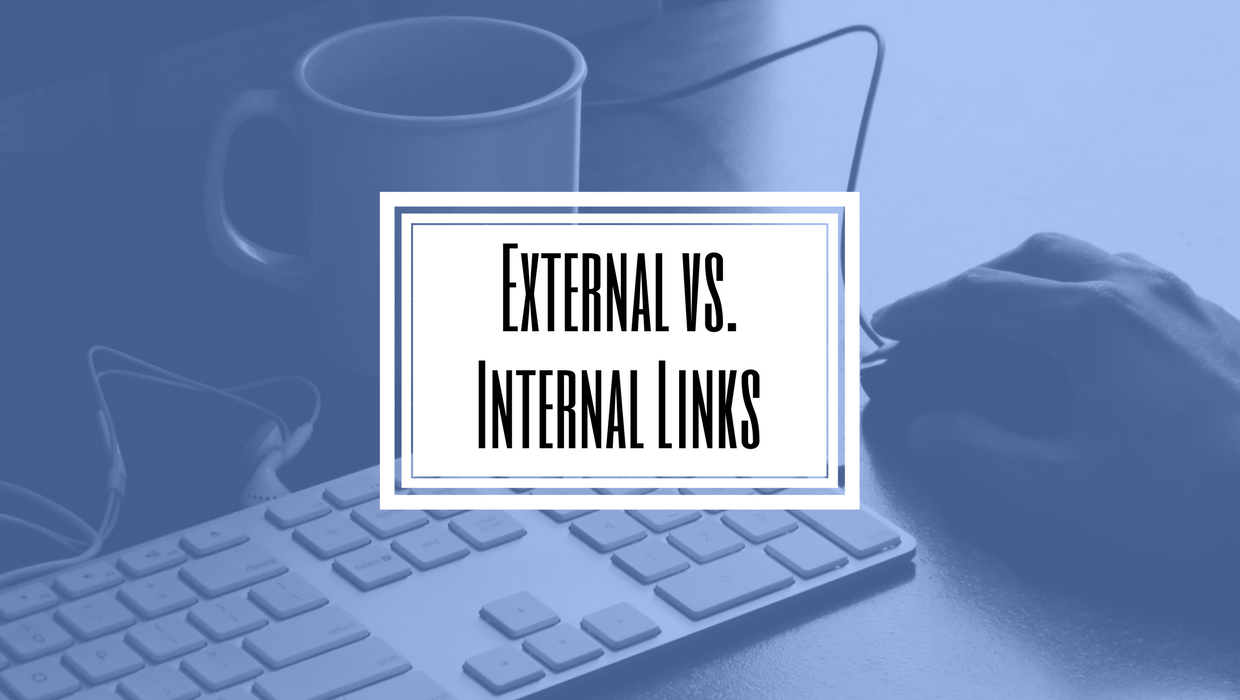Almost everyone knows what links are. But do you know the difference between external and internal links? And do you know how these impact your website’s SEO? Understanding the differences between these two links can help with the execution of your digital marketing plan. They both have a time and a place to help with strategic SEO growth.
External Links
As the name might imply, external links direct users from one domain to an entirely separate (external) domain. These links can be users to direct people from your website to another one that provides additional information. These links could also be for an affiliated program or company.
Links from other sites to yours are also external links. In this case, though they are generally called “inbound” links to distinguish them. To help boost your SEO and link building, you can create a relationship with other relevant websites. You can create external links to their site in return for them creating inbound links to yours.
Internal Links
Internal links only direct users within your own domain. A menu bar is an example of internal links. Internal links are often used in blog posts to direct people to other content, services, or contact pages. Links to another website or domain, even if owned and closely affiliated with the original site, are still considered external links and not internal ones. Inbound links are important to get users to spend more time on your site and to interact with more pages. It will also help them navigate easier.
External Links & SEO
External links are a great way to increase visibility for your website. Inbound external links are a great source of free traffic too. These things factor into Google’s search engine algorithm. Link-embedded graphics, especially infographics, are a great way to build inbound and external links as people cope and share them on their sites.
In the past, SEO companies would focus on link building to boost SEO by creating inbound links to spammy websites. Nowadays Google cares more about quality over quantity. In fact, having your site links to bad websites can lead to penalties.
It’s good to know that while external links do help your SEO, they help your users more. Links that point to external sites that have additional information are extremely beneficial to users. It saves them from having to do additional searching themselves. This won’t help your SEO but it will have a positive impact on user experience and brand authority.
Internal Links & SEO
People often don’t think that internal links help with SEO, but they actually have several benefits. When a search engine finds your site they will follow the internal links to discover and archive as many relevant pages as possible. The more relevant, quality pages your site has, the great SEO ranking it is likely to get.
It’s not necessary to link every page on your site to another one. Not only is that not always possible but it’s time-consuming. It might take longer for a search engine to register these pages though. Internal links are the structure of your website. Think of them as the hallways that connect each room in a house. Internal links will make it easier for users to explore your page and it will keep it more organized. Always have a menu bar and natural page links to help your readers and search engines.
Links & SEO Penalties
Links are great, internal and external, but there are some risks that could result in your SEO being penalized rather than increased. Having external or inbound links on sketchy or spammy websites will end up penalizing you. Google actually added this in one of their most recent software updates. Only post links to your site, and only link to other sites that are quality.
Broken links are also a problem. Links that no longer work will detract from your SEO score. Whether it’s because the pages have moved or it’s no longer online, these links are no longer good. A few broken links won’t impact your score but multiple faulty links will. Every now and then go through to make sure the external links on your site are functioning. Remove any that are not. This goes for internal links as well.
Summary
External= links that direct to different domain
Internal= links that direct to pages within the same domain
Links & The Future
Once upon a time link building was the foundation of SEO campaigns. Nowadays as users and search engines have gotten smarter it’s become more important to do real technical fixed and have quality content. Links still play an important role though. They shouldn’t be relied on solely but they also shouldn’t be ignored. Contact us to see how your website’s links are impacting its SEO score.

